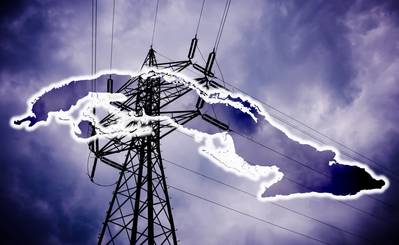Cuba closes schools and non-essential industries as millions of people go without electricity
Cuba's communist government closed schools, non-essential industries and sent home most government employees on Friday to conserve energy and stop blackouts which now last more than 12 hours per day for millions across the island.
Cuba, a country accustomed to severe shortages, has experienced incredibly long power outages. Many areas outside of Havana have less than six-hours of electricity per day. Entire provinces are without power for several hours.
Early on Friday, officials with Cuba's National Electric Union announced that all services not essential to the government would be suspended. All schools, from elementary to university level, are closed until Sunday. Even nightclubs and other cultural and recreational activities were ordered to close.
Only essential employees in the state-run healthcare and food industries are required to report for work on Friday.
The crisis is a new low for an island where the residents are already experiencing severe shortages in food, fuel and water.
On national television late Thursday night, Prime Minister Manuel Marrero blamed the blackouts for a "perfect storm" that is well known to all Cubans: deteriorating infrastructures, fuel shortages, and increasing demand.
Marrero stated that "the fuel shortage is the main factor" in a televised broadcast which was delayed by several hours due to technical problems.
Officials said that the strong wind and heavy waves caused by Hurricane Milton, which passed through the island last week, have made it impossible for the island to transport fuel from offshore boats to its power plants.
Cuba's government has also long held the U.S. responsible. Cuba's government has also long blamed the U.S.
The government announced that the island's largest power plants, Antonio Guiteras, and Felton are both underproducing. They will be soon taken off line for maintenance as part of a 4-year plan to revitalize Cuba’s decrepit infrastructure.
Marrero stated that the fast-growing private sector in Cuba, which has contributed to the increased demand for energy on the island will be charged higher prices for the energy they use to compensate for any shortfalls.
Shipments that are fading can be affixed to the ship.
Fuel supply is all but gone on an island which produces relatively little electricity.
Venezuela, Cuba's top oil supplier, reduced its shipments of crude to the island by half in the first nine month of this year. This is compared to the 60,000 barrels per day that Venezuela sent to the same period in 2023.
PDVSA's refining infrastructure, which is also in poor condition, has tried this year to avoid a new fuel shortage at home by leaving fewer volumes available for export.
Russia and Mexico have both drastically reduced their fuel shipments to Cuba.
Cuba is now forced to compete on the much more expensive spot market at a time that its government is close to bankruptcy.
The electricity officials expect that power generation will improve in the next few days, as the weather will allow fuel to be distributed from previous deliveries around the Caribbean's biggest island.
(source: Reuters)



